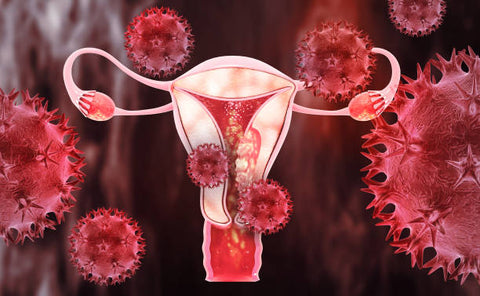A urinary tract infection (UTI) is an infection that occurs when bacteria enter the urinary tract and multiply. UTIs are the most common type of bacterial infection in humans and can affect any part of the urinary tract, including the bladder, kidneys, ureters and urethra. UTIs can lead to serious complications if left untreated, such as preterm labor, low birth weight, and kidney infections.

What are the symptoms of a urinary tract infection ?
- Burning sensation when urinating.
- You feel the urge to urinate more often than usual.
- urinating before going to the bathroom (“leaking” or incontinence)
- The feeling that the bladder is full even after urinating.
- Cloudy urine, bloody urine, urine with a strong odor.
What are the main reasons for UTIs during pregnancy?
During pregnancy, the body undergoes many changes that increase the risk of developing urinary tract infections, including changes in the composition of urine and the immune system. As your baby grows, the pressure on your bladder increases and urine flow decreases, which can lead to infection.
How to Treat Urinary Tract Infections?
1. See your doctor: If you think you may have a urinary tract infection (UTI) during pregnancy, it is important to see your doctor for diagnosis and treatment.
2. Drink plenty of fluids: Drink plenty of fluids, such as water, cranberry juice, and unsweetened juices to help flush the bacteria from the urinary tract.
3. Take antibiotics: If you are diagnosed with a UTI, your doctor may prescribe antibiotics to treat the infection. It is important to take the medication exactly as prescribed by your doctor.
4. Urinate often: Urinate often and make sure to empty your bladder completely. This helps to flush bacteria from the bladder.
5. Avoid irritants: Avoid irritating feminine products, such as douches and powders, which can increase the risk of infection.
6. Wear cotton underwear: Wear cotton underwear and avoid tight-fitting clothing, which can trap bacteria.
7. Keep the area clean: Keep the genital area clean and dry. Wipe from front to back.













1 comment
I was diagnosed with Herpes four years ago. For over two years, I relied on prescribed medications and treatments, but unfortunately, my condition continued to worsen. The flare-ups became more frequent, the discomfort increased, and even simple daily tasks became difficult to manage.Last year, out of desperation and hope, I decided to try a herbal treatment program from NaturePath Herbal Clinic. Honestly, I was skeptical at first, but within a few months of starting the program, I felt some changes. My discomfort eased, my energy levels improved, and I felt I had more control over my daily life again.It’s been a meaningful experience for me, and I feel more like myself than I have in years. This is simply my personal story. You can visit their website at www.naturepathherbalclinic.com
info@naturepathherbalclinic.com